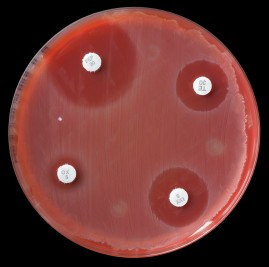 This month saw the publication of a UK Department of Health report on the growing problem of antimicrobial resistance, which included the shocking recommendation that antimicrobial resistance be added to the UK government list of threats to national security alongside terrorism and pandemic flu. In this report, Professor Dame Sally Davies, Chief Medical Officer for the UK, focused on the increasing problem of multidrug resistant organisms–raising the profile of an important issue that many scientists and health-care professionals have warned us about before. A March 12 Nature editorial welcomed the recommendations as a sign that policy makers in the UK are taking the threat of antimicrobial resistance seriously and are prepared to take more steps to address the problem of multidrug-resistant organisms. Continue reading “Antibiotics and Honey–An Old Solution for a New Problem”
This month saw the publication of a UK Department of Health report on the growing problem of antimicrobial resistance, which included the shocking recommendation that antimicrobial resistance be added to the UK government list of threats to national security alongside terrorism and pandemic flu. In this report, Professor Dame Sally Davies, Chief Medical Officer for the UK, focused on the increasing problem of multidrug resistant organisms–raising the profile of an important issue that many scientists and health-care professionals have warned us about before. A March 12 Nature editorial welcomed the recommendations as a sign that policy makers in the UK are taking the threat of antimicrobial resistance seriously and are prepared to take more steps to address the problem of multidrug-resistant organisms. Continue reading “Antibiotics and Honey–An Old Solution for a New Problem”
honey
Just a Spoonful of Honey is Medicine Enough
As we face more challenges when treating and healing humans, revisiting therapies that fell out of favor has become more common. For example, people with open wounds that are not healing receive judicious applications of maggots to remove necrotic tissue and promote healing. Leeches are used for patients after surgery to prevent blood clotting in swollen tissues and encourage healing. However, not all therapies involve direct application of squirmy creatures to skin; in fact, honey is one item people are willing to have in their homes. Honey has been used as a sweetener for food, for soothing sore throats and coughs and, more recently, for treating wounds unresponsive to traditional antibiotic therapy. In a recent PLoS ONE paper, the authors assessed the properties that are associated with honey’s antimicrobial activity against pathogenic and food-spoiling bacteria. Continue reading “Just a Spoonful of Honey is Medicine Enough”
